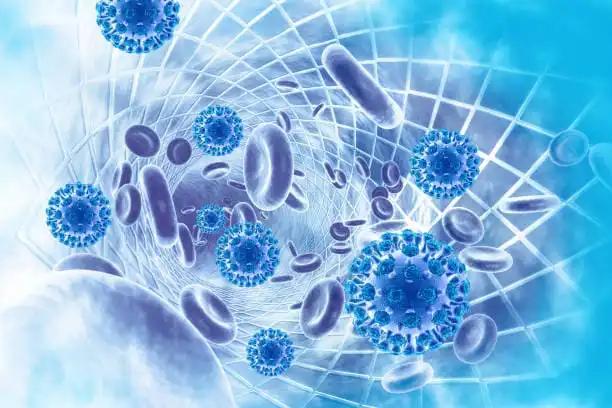KEY TAKEAWAYS
- The phase 3, open-label, randomized MajesTEC-3 clinical trial (NCT05083169) aims to compare the efficacy of teclistamab plus daratumumab (tec-dara) with the investigator’s choice of therapy (DPd or DVd) in patients with RRMM.
- Eligible patients with RRMM will be randomly assigned to receive 28-day cycles of either tec-dara or DPd/DVd.
- The study aims to provide a newer therapeutic option for RRMM patients previously treated with a proteasome inhibitor and lenalidomide.
Patients with relapsed/refractory multiple myeloma (RRMM) who have previously received treatment with a proteasome inhibitor (PI) and lenalidomide present a difficult challenge. Although approved therapies such as daratumumab plus pomalidomide and dexamethasone (DPd) and bortezomib and dexamethasone (DVd) exist, there is a need for new therapeutic options with diverse modes of action. One promising option is teclistamab (JNJ-64007957), a bispecific antibody that targets the B-cell maturation antigen (BCMA) and CD3, which has shown encouraging results in phase 1 studies. The ongoing phase 3 MajesTEC-3 study (NCT05083169) aims to compare the efficacy of teclistamab plus daratumumab (tec-dara) versus the investigator’s choice of therapy (DPd or DVd) in patients with RRMM.
The International Myeloma Working Group (IMWG) criteria will be used to confirm that eligible patients (560 planned) are at least 18 years old and have measurable multiple myeloma (MM), an Eastern Cooperative Oncology Group (ECOG) performance status of 0-2, and progressive disease status on or after their last treatment (tx) with 1-3 prior tx lines (including a proteasome inhibitor (PI) and lenalidomide), with lenalidomide-refractory status for patients with only one last tx line. Patients who have already received BCMA-directed therapy or who are intolerant to an anti-CD38 monoclonal antibody are not included. Before starting the study, patients must provide informed consent. The patients will be randomly assigned (1:1) to receive either tec-dara or the investigator’s choice of DPd or DVd (stratified by investigator’s choice of DPd or DVd, ISS stage, and several lines of prior tx) in 28-day cycles until disease progression, death, withdrawal of consent, intolerable toxicity, or the end of the study.
The approved schedules will be used for treatment with Dara, DPd, and DVd. Response assessment will be based on the 2016 IMWG criteria, and the primary endpoint will be progression-free survival (PFS). Secondary endpoints include overall response rate, complete response or better, minimal residual disease (MRD) negativity, PFS on next-line tx (PFS2), overall survival, and incidence and severity of adverse events (AEs). All AEs will be graded according to the Common Terminology Criteria for AEs (CTCAE) v5.0. In contrast, immune effector cell-associated neurotoxicity syndrome and cytokine release syndrome will be graded based on the American Society for Transplantation and Cellular Therapy (ASTCT) guidelines. MajesTEC-3, which started enrolling patients in October 2021, is currently ongoing.
Source: https://library.ehaweb.org/eha/2022/eha2022-congress/358873/mara-victoria.mateos.majestec-3.randomized.phase.3.study.of.teclistamab.plus.html?f=menu%3D6%2Abrowseby%3D8%2Asortby%3D2%2Amedia%3D3%2Ace_id%3D2233%2Aot_id%3D26843%2Amarker%3D1753%2Afeatured%3D17676
Clinical Trial: https://clinicaltrials.gov/ct2/show/NCT05083169
Mateos M, Bahlis N, Costa L, Perrot A, Pei L, Rubin M, Lantz K, Sun W, Jaffe M, Kobos R, Nooka A. MajesTEC-3: Randomized, phase 3 study of teclistamab plus daratumumab versus investigator’s choice of daratumumab, pomalidomide, and dexamethasone or daratumumab, bortezomib, and dexamethasone in patients with relapsed/refractory multiple myeloma.DOI: 10.1200/JCO.2022.40.16_suppl.TPS8072 Journal of Clinical Oncology 40, no. 16_suppl (June 01, 2022) TPS8072-TPS8072.



